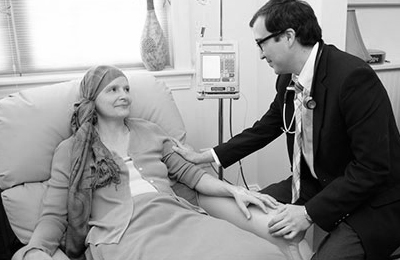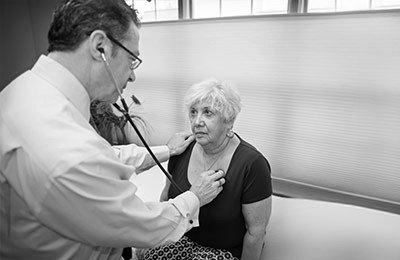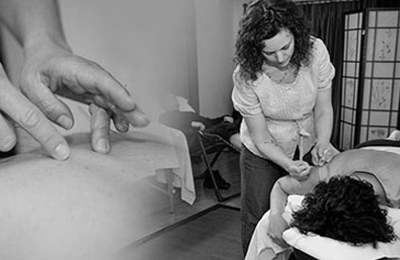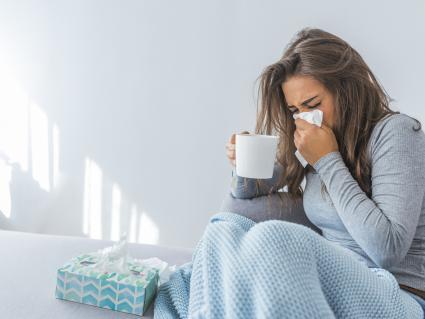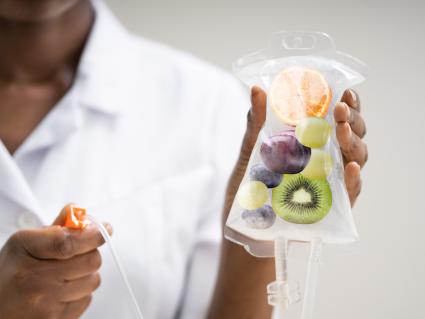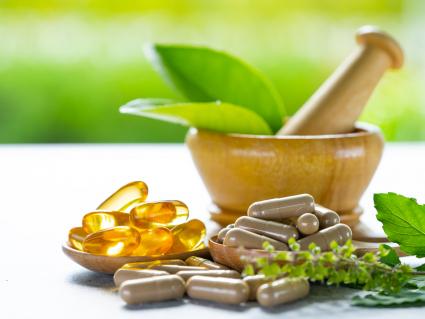Should my 17 weeks pregnant partner get the H1N1 Vaccine?...
We are not supporters of vaccines in general and looking for holistic perspectives considering pregnant women are at high risk.
At the Center we understand the holistic approach to prevention of diseases including the flu.
There are many available options to improve your immune system to reduce your risk in contracting colds and flu and also reducing the severity of symptoms if contracted. You can review our supplement recommendations for preventing flu (including Swine) on our Supplement of the month pages for some examples.
Pregnant women are at greater risk for pneumonia, dehydration and fetal complications when contracting the H1N1 Flu. The H1N1 flu vaccine in its injectable form is a likely safe vaccine for pregnant women. As a holistic doctor, it would still be my recommendation for high risk groups to receive the injectable form of the vaccine, as opposed to the nasal spray. The nasal spray represents a killed whole virus and therefore has higher risk of complications. The injectable form represents viral components and not whole virus.
The decision to vaccinate is ultimately a personal one which requires knowledge of all choices.
My 72 year old mother has been diagnosed with HTN and had TIA’s…
She is now having several side effects from her medications and wants to know if there are any natural supplements or herbs that can help keep her blood pressure down.
Yes, there are natural herbs, dietary recommendations and stress management techniques that can be very helpful in reducing blood pressure to the point of eliminating pharmaceuticals or at the very least reducing the number of medications and dosage needed.
Each patient must be treated as an individual, therefore a consultation is essential for an appropriate healthcare treatment plan.
I have a chronic, severe cough and vocal cord dysfunction caused by gastric problems…
Medications do not help much. The cough and vocal cord dysfunction disrupts all aspects of my life. Can anything be done?
At the Center our approach would be as follows: An initial consultation would review studies already done; a very close look at your diet; a suggestion to have a food sensitivity blood test to assess potential allergens in your diet; stool samples could also reveal causative factors for a dysfunction gastrointestinal tract.
Our goal would be to get to the root of your problem, not just treat your symptoms. There are also manual medicine techniques that can be very beneficial for reflux conditions which may be part of your condition.
Does your approach to patient care go beyond what I have experienced…
in that if the doctor does not see something he is familiar with he says nothing is wrong and does not go any further?
Our philosophy at the Center is to create partnerships with our patients. This is the hallmark of Integrative Medicine.
Active listening is part of that relationship, where the patient is the teacher and the doctor is the student. Together we search and review information gathered to the best of our abilities and expertise. In this way we can deliver a healthcare plan that is based on a collaborative effort and built on trust.
Can depression/anxiety be treated naturally?
Yes, there are mind-body techniques such as meditation and breathing exercises which can be taught on an individual or group level.
Diet and exercise can also play a significant role in reducing symptoms and aiding in stress management. There are also natural herbal supplements which can be tailored specifically to the individual.
Is there an alternative method for healing hyperthyroidism…
with the presence of bulging eyes and goiter?
Graves disease is an autoimmune disease characterized by hyperthyroidism and is the most common cause of hyperthyroidism.
Antibodies bind to thyroid receptors, causing the thyroid to swell, and make excess thyroid hormone. The cause of Graves disease appears to be related to genetic predisposition in conjunction with environmental factors. There are many symptoms related to hyperthyroidism, including heart palpitations, anxiety, weight loss, and diarrhea. Increased swelling and edema in the eye orbit can cause a protrusion of the eyes, or exophthalmos. Conventional treatments include radioactive iodine, antithyroid medications, and surgery.
Naturally, the focus is to decrease antibody production. This can be accomplished through a specific anti-inflammatory diet, and using specific herbs that help to decrease antigen-antibody complexes. However, symptoms of Graves disease are often serious and difficult to treat, and natural therapies are often used in conjunction with conventional medicine.
I have been suffering from repeat yeast infections…
for approximately 7 years and been to several doctors. HELP! The last doctor has told me you might be able to help. Is there anything you can do?
Yeast infections are very common, and are often a sign that there maybe an internal yeast (or candida albicans) overgrowth in the gastrointestinal tract.
This seems to have become more common, due to the widespread use of antibiotics. These antibiotics do not affect yeast, therefore it is able to grow unopposed by healthy bacteria, or probiotics. At the Center, we offer a Comprehensive Digestive Stool Analysis to test for bacteria—good and bad, and yeast levels. This test allows us to provide an individualized anti-candida protocol designed to eliminate the yeast internally, while concurrently providing natural alternatives to alleviate external yeast conditions.
Is there any alternative treatments for a hyperparathyroid condition…
My grandmother is 84 years old with an extensive medical history. The physicians say that surgery is her only treatment.
Watchful waiting for Hyperparathyroidism:
Your doctor may recommend no treatment and regular monitoring if:
- Your calcium levels are only slightly elevated
- Your kidneys are functioning normally
- Your bone density is normal or only slightly below normal
- You have no other symptoms that may improve with treatment
If you choose this watch-and-wait approach, you’ll likely need a test to check your blood-calcium levels at least twice a year and have other monitoring tests done at least once a year.
Complimentary treatments are available that can improve kidney function and maintain normal Calcium levels. Also, acupuncture and cranialsacral massage can slow the progression of the disease.
Surgery:
Surgery is the most common treatment for primary hyperparathyroidism and provides a cure in at least 90 percent of all cases. A surgeon will remove only those glands that are enlarged or have a tumor (adenoma). If all four glands are affected, a surgeon will likely remove only three glands and perhaps a portion of the fourth — leaving some functioning parathyroid tissue. Surgery may be done as an outpatient procedure, allowing you to go home the same day. In such cases, the surgery is done through very small incisions in the neck, and you receive only local anesthetics. Complications from surgery aren’t common. Risks include:
- Damage to nerves controlling the vocal cords
- Long-term low calcium levels requiring the use of calcium and vitamin D supplements
I would appreciate your recommendation for restless leg sydrome…
This is bothersome when trying to get to sleep.
Restless leg syndrome is becoming more common, and is often misdiagnosed. Women tend to be affected more than men.
Although it can begin at any age, it usually affects older adults. The cause remains unclear, however a few theories suggest that it stems from a disruption of dopamine pathways. Disruptions in iron levels have also been found in people with RLS. There also seems to be a genetic component to RLS.
I would make sure that you and your doctor have ruled out other causes such as iron deficiency, B12, folate, or magnesium deficiency, autoimmune disorders, diabetes, and thyroid disorders. Some medications may cause or worsen symptoms such as antidepressants, Zantac or Tagamet, and also caffeine and alcohol.
Unfortunately, there is not just one thing that can help with these symptoms. RLS must be addressed on an individual basis, and typically a whole person approach in finding options for therapy.
My 13 year old son was just diagnosed with Crohn…
I want to avoid the medications that are typically used to treat patients with this condition. I would like to know which supplements and diet changes have proved most effective in your experience.
Crohn’s disease is an inflammatory disease of the intestine, most commonly the small intestine. The exact cause is unknown, but believed to be due to genetic factors, microbial, autoimmune, dietary, and or environmental.
It most commonly affects people between the ages of 15-30 years old, and 60-80 years old. The most common symptoms are low-grade fever, prolonged diarrhea, abdominal pain, and weight loss. The disease may also affect the skin, eyes, joints, and mouth. Because Crohn’s affects mostly the small intestine, absorption of vitamins and nutrients are greatly disrupted.
Conventionally, anti-inflammatory and immunosuppressive agents are typically used to decrease the inflammation. At the Stram Center for Integrative Medicine, we use specialized testing methods such as Food Allergy Tests and a Comprehensive Digestive Stool Analysis. Together these tests may find causes that may be related to microbes, diet, and or the environment. From there, we can then provide an individualized plan that would include dietary modifications, replenishing the gut with good natural flora and nutrients, and repairing the gut using natural anti-inflammatory agents and specific herbal remedies tailored to the individual. We also offer IV Nutrient Therapy that would be of great benefit for faster recovery from vitamin and nutrient deficiencies due to intestinal malabsorption.

